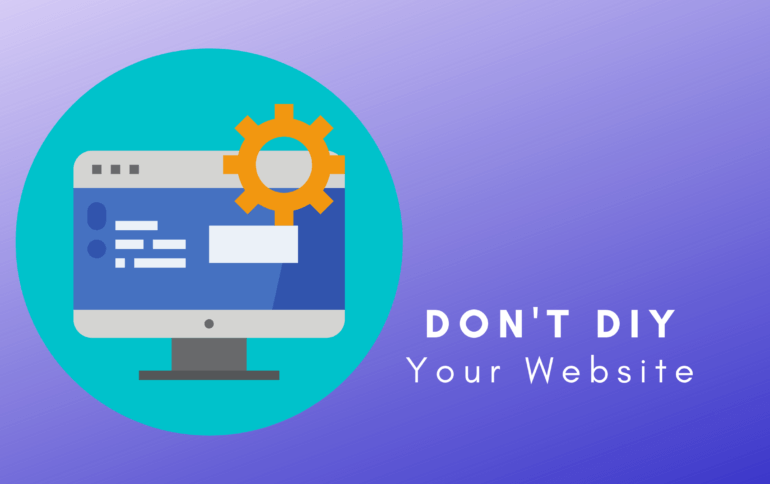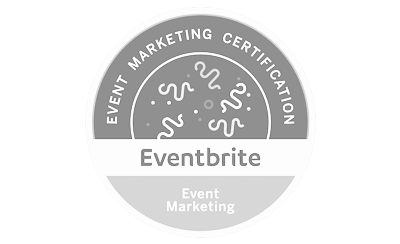

Below we outline the main reasons you shouldn’t try to build your own website. We take a look at three of the most popular DIY website building platforms marketed to consumers as user friendly: Wix, Squarespace, and Weebly. All of these platforms heavily market themselves as “easy to use” for anyone looking to build a website, and require no advanced coding knowledge or skill. They have relatively easy interfaces with drag and drop functionality that can be used to create the design; however, all of them have significant issues when it comes to performance and functionality.
Design and User Experience
While these DIY platforms make it relatively simple to design a website, effective digital design is more complicated than most people realize. The drag and drop functionality used by most DIY website creation platforms makes creating a desktop version of your website easy, but the platform determines the order in which the different elements load on a mobile device. Making sure all of the elements look correct on both the desktop and mobile versions can be complicated, and sometimes requires a website developer to strike a balancing act between what looks good on one versus the other. With mobile traffic accounting for between 40% and 50% of all web traffic, it’s incredibly important your website looks good everywhere, no matter the screen size.
On DIY platforms, users must select from template options. Most templates include layouts and features law firms will never need, such as product page layouts designed for retail stores or menus for bars and restaurants. The templates will thus still require significant editing in order to fit the needs of a law firm. For example, award badges from organizations like Super Lawyers or Best Lawyers are typical mainstays of any law firm website. None of the DIY templates have a pre-designated space for items like this, so you would have to figure out how to add each badge to every lawyer biography page one at a time, making sure they are uniform in size and spacing.
Templates also mean you have to work with a predefined structure. Each of the platforms has pros and cons – including how easy to use and/or restrictive the templates are. WIX has simple drag and drop editing functionality for beginners but requires a lot of add-ons from its app store to get everything you really need. Squarespace has very high-quality templates but requires more technical “know how” in order to edit them. Weebly is more restrictive in its editing and the designs are more structured, but is the most economical of the three. Regardless, all three platforms still require a significant time investment to figure out how to adapt a pre-made design to fit your law firm’s needs – and more than likely, it’s simply not going to be quite the right fit.
User experience involves technical components that go into designing a website that ensure each user has a an optimal website visit. Nothing is more aggravating than visiting a website on a mobile device, clicking on the phone number…. and nothing happens. Even with how user friendly the DIY platforms are, all of them require a degree of technical knowledge to ensure functionality like this is properly enacted, including how to properly code a phone number so mobile users can tap it to automatically load it into a phone dialer or code an email address so clicking on it pops open an email pre-loaded with the address in the “To” field. Most consumers have come to expect websites will have this functionality, so leaving it off of your law firm website is a mistake as it prevents visitors from being able to convert into leads. Unfortunately, DIY platforms don’t make adding this functionality intuitive, leaving it up to the creator to figure it out.
Overall, the template adjustments required to ensure a website appears correctly on mobile devices and desktops can be exceptionally time consuming – especially for someone trying to run a law practice who may not know what is important and what is not when it comes to website functionality.
Organic Search Performance
Google overall has no issues “reading” the code used in DIY websites; but, those who build their own websites do so without the technical skills needed to optimize them for search engine success. Because DIY platforms are marketed as easy to use and requiring no technical “know how,” users build websites that don’t include the technical elements necessary to rank well organically (or even rank at all in many cases).
Optimizing a website for organic search involves a lot of different elements. All three platforms offer search engine optimization (SEO) tools (some better than others), but the tools require at least some level of user knowhow. For example, all three platforms allow for the specification of metadata for a webpage. Metadata is what shows up in Google search results. In the example below, the red arrow points to the meta title, while the purple arrow points to the meta description. By specifying exactly what you want your metadata to say, you have an element of control over what appears in Google search results. Google also uses this data to better understand what your content is about and whether or not it relates to what a user is searching for.
As mentioned above, all three DIY platforms do allow users to input metadata, but most users don’t know how to do it correctly. Search engines specify recommended character counts for all aspects of metadata, which prevent the text from being cut off, especially in mobile search results. Crafting metadata for the best possible results is something marketing professionals do on a regular basis, but is well outside the comfort zone of others.
This issue is compounded when reviewing the other SEO offerings of the platforms. For instance, while Squarespace has a robust SEO checklist available for users, it includes a lot of technical jargon that won’t make sense to most non-marketers, making it more likely that users will skip these steps. All of these steps, however, are incredibly important for a website to perform well in organic search results, meaning law firms that focus on the cost and ease of a DIY solution are ignoring the technical foundation necessary for digital success.
Site Speed
Websites need to load quickly – both from a user perspective and for performance in search results. The longer it takes for a website to load, the more visitors it will lose. Dozens of studies have shown people abandon a website if it takes longer than three to four seconds to load.
Additionally, if there is one thing Google continues to value more and more, it’s the overall speed of websites. Google has repeatedly told us that speed is a major ranking factor for both Google Search and Google AdWords. This means how fast your website loads affects not only its organic rankings, but also impacts the performance of any AdWords campaigns being run that drive traffic to the website.
DIY platform websites are bulkier and slower because they use extra coding to make editing easy to use for consumers. While this makes building a website on one of these platforms simple, it also weighs the website down – which means it will take longer to load.
Site speed is also impacted by hosting. Websites don’t actually live on the Internet; instead, they live on a computer server, which is referred to as “hosting.” The computer server where a website is hosted plays a big role in how quickly a website loads. If you’re using a DIY platform, you cannot select where your website is hosted – they are all hosted directly through the platforms themselves. This means how quickly your website loads is primarily dependent on their computer servers, leaving you with no real options to increase your website speed using these platforms.
Websites for Law Firms
Going the DIY route for building a website for your law firm might seem quick, easy, and cheap, but it includes more hurdles than you realize. Hiring a marketing professional to build your website not only ensures a higher quality result designed for optimal speed and performance, it also frees you up to practice law, help your clients, and handle the day-to-day business of running a law firm. If your law firm is in need of a new website or looking to update its digital presence, find out how we can help.














Leave a Comment